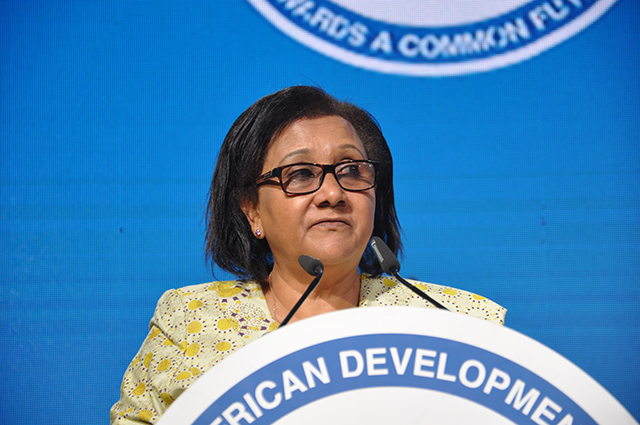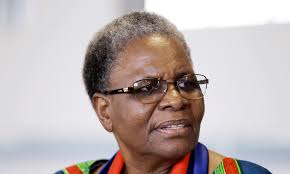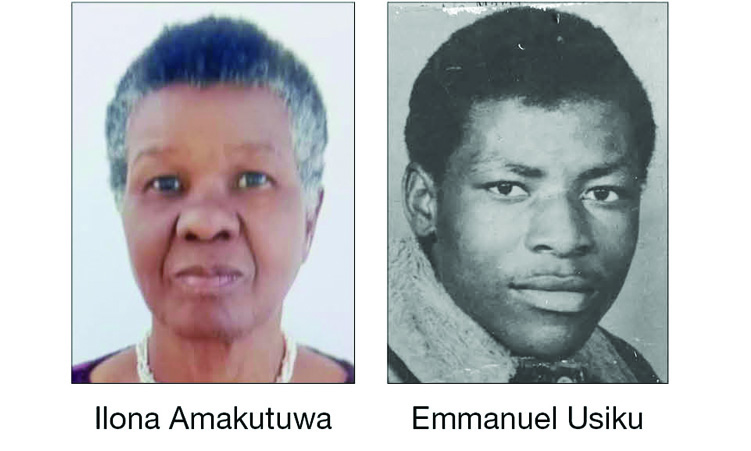SADC’s executive director Stergomena Lawrence Tax says industrialisation remains the main focus for the region as it aims to attain accelerated and sustainable industrial development.
Tax stated that this will be done by increasing the region’s member states’ share of manufacturing value addition in the gross domestic product to 20% by 2020, and to 40% by 2050.
The executive director was speaking at the SADC meeting of trade ministers and the 20th ministerial task force on regional economic integration, which took place last Friday in Windhoek.
“We remain with one year to 2020, and we have a lot to do to catch up. For this to be realised, the region has to remain focused and committed to the implementation of the SADC industrialisation agenda by paying attention to all industrialisation strategy pillars, namely industrialisation; regional integration; competitiveness; and the cross-cutting pillars, which outlines a number of complementary interventions that are supposed to be implemented coherently,” she said.
Tax added that since the meeting in July 2018, the region saw the implementation of both the regional indicative strategic development plan 2015-2020, and the regional industrialisation strategy and roadmap 2015-2063.
During this year, progress has been made in identifying and developing value chains, and member states were thus encouraged to speedily implement the value chains.
“lt should, however, be appreciated that value chains can only be effectively implemented and realised if the supporting infrastructure, enabling legal environment, and necessary skills are in place, and barriers to trade and policy bottlenecks are addressed. All these are embedded in the four pillars of the SADC Industrialisation strategy and roadmap 2015-2063,” Tax stated.
She further noted that progress continues to be made in terms of market integration, which progress is towards the implementation and consolidation of the SADC and continental free trade areas.
Tax said they remain concerned with the slow pace of the finalisation in the exchange of offers, and “the ratification of the Comesa-East African Community-SADC free trade area, especially in light of the progress being made under the Africa continental free trade area.”
She thus appealed to members to finalise tariff negotiations and ratification processes for the tripartite free trade area agreement for the region to reap the benefits of the continental free trade area.
“Non-tariff barriers also continue to pose a serious challenge to both intra- and inter-regional trade. Although progress has been made, there is a need to intensify efforts to eliminate all forms of trade barriers in our region if we are to sustain the realised gains,” the executive director observed.
Speaking at the same meeting, trade minister Tjekero Tweya said these meetings are one manifestation of the region’s deep commitment to support the common interests of the members, whilst helping one another to improve the economic well-being of the respective countries and communities.
The minister also called on members to speed up the implementation of the regional industrialisation agenda by adopting the protocol on industry, which is the enabling instrument.
“In the not too distant future, the concept of the African continental free trade area will be an instrument that will ignite the engine to move a huge market of 1,3 billion people across African borders to increase intra-Africa trade. In this regard, it is imperative that we fast-track the ratification of the SADC protocol on trade in services,” Tweya stated.
– charmaine@namibian.com.na; Twitter: Char_Ngatjiheue.
Stay informed with The Namibian – your source for credible journalism. Get in-depth reporting and opinions for
only N$85 a month. Invest in journalism, invest in democracy –
Subscribe Now!










